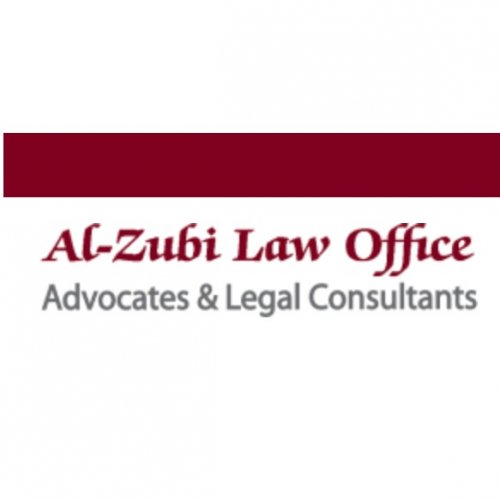Best Corporate & Commercial Lawyers in Palestine
Share your needs with us, get contacted by law firms.
Free. Takes 2 min.
Or refine your search by selecting a city:
List of the best lawyers in Palestine

Istikamah For Advocates And Legal Services - استقامة للمحاماة والخدمات القانونية
15 minutes Free ConsultationAbout Corporate & Commercial Law in Palestine
Corporate and commercial law in Palestine governs the formation, operation, and dissolution of businesses, as well as the legal relationships between companies, their shareholders, employees, and third parties. This field covers a wide range of legal matters such as company registration, business transactions, mergers and acquisitions, financing, corporate governance, and dispute resolution. Palestine's legal system in this area reflects a hybrid of Ottoman, British Mandate, Jordanian, and Egyptian laws, alongside local legislation. The evolving business environment and intersecting jurisdictional complexities require careful legal navigation, especially for foreign investors and local entrepreneurs looking to establish or expand their enterprises.
Why You May Need a Lawyer
Corporate and commercial lawyers play a crucial role in protecting businesses and investors by ensuring compliance with local regulations and minimizing risks. Common situations where legal assistance becomes essential include:
- Incorporating a new company or registering a branch of a foreign business
- Drafting or reviewing contracts with suppliers, customers, or employees
- Navigating partnership, joint venture, or merger agreements
- Managing shareholder or partnership disputes
- Handling leasing, acquisition, or sale of business assets
- Ensuring compliance with labor, tax, and licensing regulations
- Protecting intellectual property such as trademarks or patents
- Responding to regulatory changes or government investigations
- Addressing insolvency or liquidation matters
- Facilitating foreign investment and cross-border transactions
In these situations, a lawyer's expertise can help you make informed decisions, avoid legal pitfalls, and resolve disputes efficiently.
Local Laws Overview
Palestine’s corporate and commercial laws are influenced by several legal traditions and recent amendments aimed at improving business conditions. Some key aspects include:
- Company Registration: The Companies Law establishes rules for setting up different company types such as limited liability companies, partnerships, and public shareholding companies. Registration is handled through the Ministry of National Economy.
- Contract Law: Business contracts are generally governed by the Civil Law which provides the framework for agreements and obligations among parties.
- Labor and Employment: The Palestinian Labor Law sets minimum standards for employment terms, working hours, and dispute resolution between employers and employees.
- Taxation: Businesses must comply with Palestinian tax regulations covering income tax, VAT, and other applicable taxes, administered by the Palestinian Authority’s tax departments.
- Foreign Investment: There are specific laws aimed at encouraging and protecting foreign investors including provisions on repatriation of profits and fair treatment.
- Intellectual Property: Trademark, copyright, and patent protection are available under national legislation, although enforcement may require specialist legal support.
- Regulatory Environment: Commercial activities are also regulated by sector-specific laws and licensing requirements, overseen by relevant ministries and local authorities.
Given this complex legal landscape, operating a business in Palestine requires a thorough understanding of both statutory law and administrative procedures.
Frequently Asked Questions
What types of business entities can I register in Palestine?
You can register as a sole proprietorship, general partnership, limited partnership, limited liability company (LLC), or public shareholding company, depending on your needs and the capital structure.
How long does it take to register a company?
The timeline varies depending on company type and required approvals, but registration of a standard LLC can typically be completed within several weeks, provided all documents are in order.
Are there restrictions on foreign business ownership?
Generally, foreign investors can fully own businesses except in certain sectors that may have restrictions. Legal advice is recommended to ensure compliance with current investment regulations.
What are the main steps for setting up a business in Palestine?
Key steps include choosing the business type, reserving a name, preparing legal documents, registering with the Ministry of National Economy, obtaining applicable licenses, and registering for taxes.
Do I need local partners to start a company?
Local partners are not always required, especially for certain company types. Certain sectors or activities may impose partnership requirements, so specialist advice is helpful before proceeding.
What contracts should my business have?
At minimum, businesses should have well-drafted articles of association, shareholder agreements, employment contracts, and agreements with suppliers or service providers tailored to local laws.
How can I resolve a dispute with a business partner?
Disputes can be resolved through negotiation, mediation, arbitration, or litigation. Many companies include arbitration clauses in contracts to provide a clear pathway for dispute resolution.
What are my obligations regarding taxes and reporting?
Businesses must file tax returns, pay applicable taxes, and comply with accounting and financial reporting requirements set forth by the Palestinian tax authorities.
How is intellectual property protected in Palestine?
Protection is available for trademarks, copyrights, and patents through registration with the appropriate governmental bodies. Enforcement can require legal action if infringements occur.
What local permits or licenses are required for my business?
Permit and license requirements vary according to business activity and location. Common permits are issued by municipal authorities, ministries, and sector regulators.
Additional Resources
If you need further information or assistance, consider these resources:
- Ministry of National Economy: Handles company registration, licensing, and economic policy.
- Palestinian Investment Promotion Agency (PIPA): Supports investors and provides information on legal frameworks for investment.
- Palestinian Chambers of Commerce: Offer support, arbitration, and business resources on a local level.
- Palestinian Bar Association: Can provide referrals to qualified corporate and commercial lawyers.
- Tax Authorities: For assistance with business taxation requirements and compliance.
- Local Banks and Financial Institutions: Often provide business advisory services and updates on regulatory changes.
Next Steps
If you are seeking legal guidance in the field of corporate and commercial law in Palestine, start by clearly identifying your business goals and legal needs. Gather all relevant documentation such as identification, ownership details, and any existing agreements or licenses.
It is advisable to contact a qualified lawyer with experience in Palestinian corporate and commercial law before making major business decisions. A lawyer can help you conduct due diligence, draft necessary documents, ensure regulatory compliance, and assist in negotiations or dispute resolution.
Reach out to local bar associations or business advisory centers for recommendations, and consider scheduling an initial consultation to assess how a legal professional can best support your business ambitions.
Being proactive in seeking legal advice will help you minimize risks, maximize opportunities, and operate your business confidently within the evolving legal landscape of Palestine.
Lawzana helps you find the best lawyers and law firms in Palestine through a curated and pre-screened list of qualified legal professionals. Our platform offers rankings and detailed profiles of attorneys and law firms, allowing you to compare based on practice areas, including Corporate & Commercial, experience, and client feedback.
Each profile includes a description of the firm's areas of practice, client reviews, team members and partners, year of establishment, spoken languages, office locations, contact information, social media presence, and any published articles or resources. Most firms on our platform speak English and are experienced in both local and international legal matters.
Get a quote from top-rated law firms in Palestine — quickly, securely, and without unnecessary hassle.
Disclaimer:
The information provided on this page is for general informational purposes only and does not constitute legal advice. While we strive to ensure the accuracy and relevance of the content, legal information may change over time, and interpretations of the law can vary. You should always consult with a qualified legal professional for advice specific to your situation.
We disclaim all liability for actions taken or not taken based on the content of this page. If you believe any information is incorrect or outdated, please contact us, and we will review and update it where appropriate.
Browse corporate & commercial law firms by service in Palestine
Palestine Attorneys in related practice areas.
Browse corporate & commercial law firms by city in Palestine
Refine your search by selecting a city.















